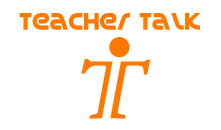I recognise that as a professional educator you may receive many requests for participation in research but trust that this project may be of particular interest to many school teachers and school leaders.
I am seeking your assistance in two ways:
1. Taking up the invitation to participate by completing the online questionnaire;
2. Passing on the invitation, through social software (e.g. LinkedIn or Facebook) or via email, to any colleagues who are school teachers or school leaders.
I am seeking participants from Primary and Secondary school leaders and teachers, full-time, part-time and casual teachers, in all sectors. I am also seeking participants from all Australian States and Territories.
This project invites teachers and school leaders to report on a range of workplace factors as well as the connection between work life and life outside work. With the exception of some Government commissioned workforce data collection, most previous research with Australian teachers and school leaders focuses on one group or the other and has generally not sought participants from all school sectors across Australia. This research is also being undertaken at a time when school teachers and school leaders are expected to play a key role in the delivery of the Australian Government’s reform agenda for education.In passing on this invitation to others can you please include the preceding information as well as the following statements:
"You have received this invitation through email or social software networks either directly from the researcher or from a teacher or school leader colleague. Your name or personal details have not nor will not be recorded in connection with the collection of data. For ease of use and anonymity, participants are invited to complete an online questionnaire that should take approximately 12 to 15 minutes to complete. The questionnaire can be accessed at the following website:http://www.surveygizmo.com/s3/1561139/AustSchoolTeacherWell-beingSurvey2014.
For further details regarding the conduct of the study, please refer to the Information Sheet on the SurveyGizmo site. The study is being conducted by Geoffrey Bowser and will contribute to the Masters degree project in Master of Psychology (Clinical Psychology) at James Cook University.
If you have any questions about the study, please contact – Geoffrey Bowser or Dr Connar McShane.
Principal Investigator:
Geoffrey Bowser
School of Arts and Social Sciences
James Cook University
Phone: 4781 6879
Email: geoffrey.bowser@my.jcu.edu.au
Supervisor:
Name: Dr Connar McShane
School of Arts and Social Sciences
James Cook University
Phone: 4781 6879
Email: connar.mcshane@jcu.edu.au
If you have any concerns regarding the ethical conduct of the study, please contact:
Human Ethics, Research Office
James Cook University, Townsville, Qld, 4811
Phone: (07) 4781 5011 (ethics@jcu.edu.au)".
Thank you for considering participation and if possible please invite teacher or school leader colleagues to participate.
Geoff Bowser


